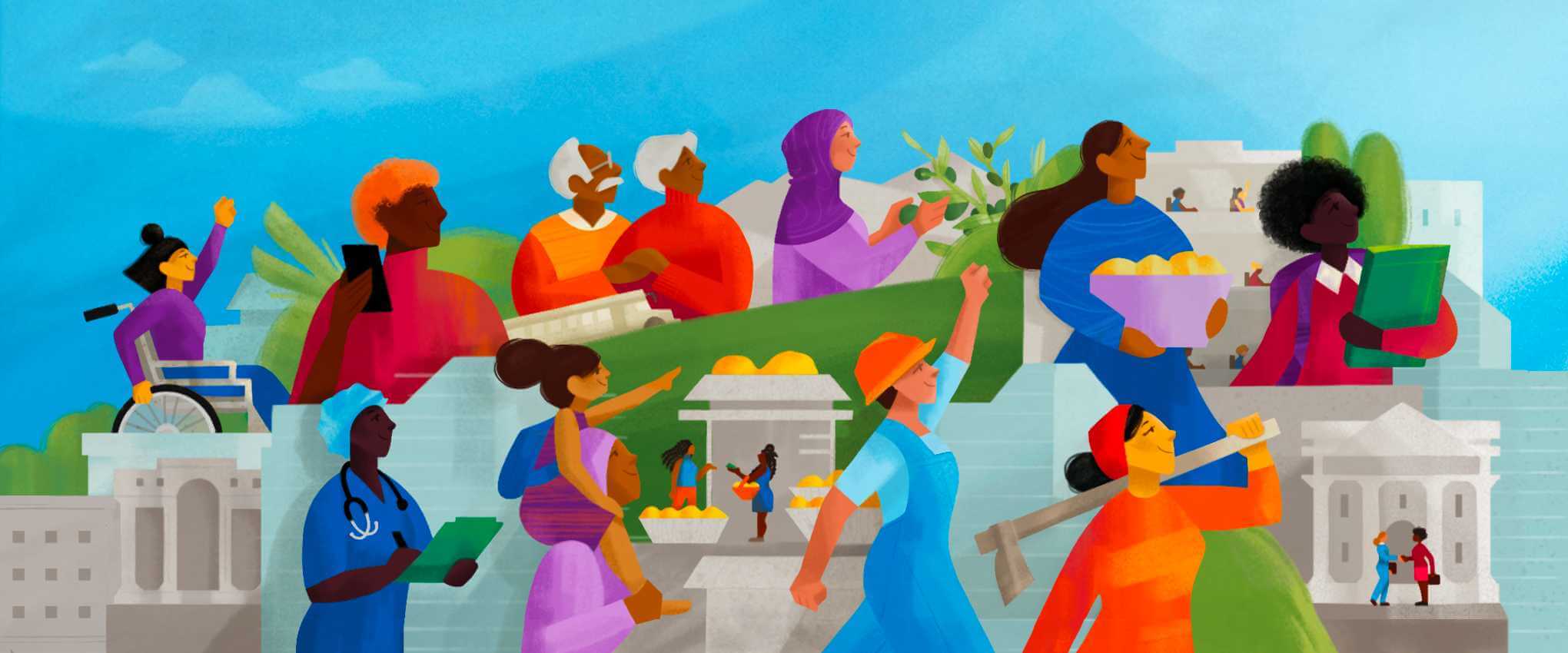Statement on the CSW68 Agreed Conclusions

The 68th UN Commission on the Status of Women (CSW68) was held in New York from March 11 to 22, 2024. On its final day, a set of Agreed Conclusions were adopted, centering on CSW68’s theme: “Accelerating the achievement of gender equality and the empowerment of all women and girls by addressing poverty and strengthening institutions and financing with a gender perspective.” In addition to sending 20 delegates to CSW68, CFUW-FCFDU was pleased to have the opportunity to provide input on the Agreed Conclusions as a member of WAGE’s Rapid Response Group.
Now, it is critical that the text of this document is not merely text, but a blueprint for action. In line with the Agreed Conclusions, CFUW-FCFDU urges the federal government to take the following domestic actions in particular:
- Respect, protect, and fulfill the rights of all Indigenous women and girls by addressing the multiple and intersecting forms of discrimination and barriers they face, including eliminating and preventing all forms of violence and poverty, food insecurity, water scarcity, and degradation of natural habitats and land degradation (see full paragraph uu)
Within the Canadian context, this is a critical issue, yet inadequate action has been taken. The Calls for Justice from the National Inquiry into Missing and Murdered Indigenous Women and Girls continue to go woefully unanswered. More work is urgently needed by the federal, provincial, and territorial governments to prevent the degradation of natural habitats and to ensure Indigenous Peoples’ free, prior, and informed consent. Until the human rights of all Indigenous women, girls, and gender-diverse people are respected, gender equality and the empowerment of all women and girls will not be achieved in Canada.
- Implement comprehensive, participatory poverty eradication policies and invest in approaches that address systemic barriers and structural root causes of gender inequality to ensure an adequate standard of living for all women and girls (see full paragraph h)
The Agreed Conclusions also reaffirm the right to safe drinking water, food, and housing, all of which are not universally available in Canada, but must be—especially in Indigenous and other marginalized communities.
- Make sustained investments in the care economy, including through the provision of accessible, affordable child care (see full paragraph nn)
While CFUW-FCFDU applauds the Canada-wide Early Learning and Child Care program, significant long-term investment is needed to end the gaps in child care spaces and provide adequate wages to staff.
- Urgently address the challenges posed by the impacts of climate change, promote the integration of a gender perspective into environmental and climate change policies, and recognize Indigenous Peoples’ contributions to climate change mitigation and adaptation (see full paragraphs j and uu)
Climate change is already disproportionately affecting women, girls, and marginalized communities around the world and in Canada, making partnerships with Indigenous Peoples essential and ambitious climate action a top priority for the achievement of gender equality.
Furthermore, CFUW-FCFDU urges the federal government to take the following international actions in particular:
- Implement the 0.7% of gross national income target for official development assistance (see full paragraph ppp)
This target was adopted in a UN Resolution (under Canadian leadership) in 1970, and yet Canada spent only 0.37% of its gross national income on ODA in 2022. Canada should fulfil its obligation to ODA funding. As a champion of the Sustainable Development Goals (SDGs), increased funding for the Feminist International Assistance Policy will facilitate response to the Secretary-General’s call for an SDG stimulus to accelerate progress toward the Goals.
- Call for strengthened multilateral actions by all creditors to address the deteriorating debt situation (see full paragraph lll)
A key outcome of CSW68 was the recognition that sovereign debt restricts the fiscal space for investments in women and girls living in poverty, and debt relief can thus play an important role in achieving the SDGs. Canada can show leadership in championing a timely and fair international debt workout mechanism to open up the space for investment.
- Provide emergency assistance to women and girls living in situations of armed conflict, protect the safety and wellbeing of civilian populations, and ensure that women participate in conflict prevention, peacebuilding, and post-conflict reconstruction (see full paragraphs l and m)
With so many armed conflicts raging around the world, Canada has a moral responsibility to do everything in its power to protect civilians’ lives and support peace processes that involve equal and meaningful participation by women.
- Invest in equitable, accessible, and inclusive education, lifelong learning, reskilling, and vocational training and studies for all women and girls (see full paragraph hh)
Education is one of the most powerful levers to lift women and girls out of poverty. Canada should pay particular attention to the 2022 Transforming Education Summit’s Calls to Action.
CFUW-FCFDU will monitor the implementation of the CSW68 Agreed Conclusions and look forward to receiving Canada’s post-CSW68 action plan. We hope to see significant progress being made towards these recommendations, especially as we approach next year’s 30th anniversary of the Beijing Platform for Action.
We sent this statement to Prime Minister Justin Trudeau, Minister of Foreign Affairs Mélanie Joly, Minister for Women and Gender Equality Marci Ien, and Minister of International Development Ahmed Hussen. Read our letter here.